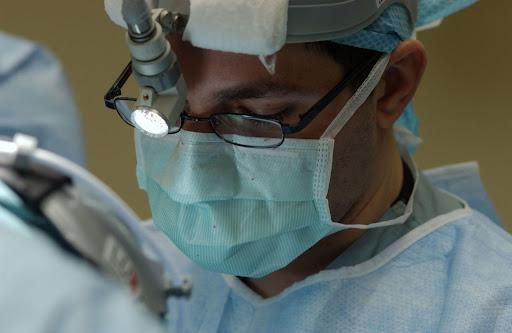Surgery
It is no news that many people want to lose weight. There are so many reasons people want to shed fat; because others are body shaming them, or they want to avoid the health risks associated with extra fat.
"The result of some weight-loss options may not be evident immediately for certain people who are desperate to lose weight. They may therefore go for options that bring quicker results," says Attorney Russell J. Berkowitz of Berkowitz Hanna Malpractice & Injury Lawyers. In a bid to shed fat fast, some people will go for bariatric surgery.
What is Bariatric Surgery?
Bariatric surgery is a procedure that assists people in losing weight. It can help people who have not had long-term success with other weight-loss methods like exercise and diet, especially those who are obese.
For several decades, bariatric surgery has become more refined. The refinement involves using small incisions to execute minimally invasive surgical techniques such as robotic and laparoscopic. These developments enable patients to have a significantly better experience with less pain, fewer problems, shorter hospital stays, and faster recovery times.
Bariatric surgery aims to reduce obesity and related disorders by modifying the stomach and intestines. The operations may cause the stomach to shrink and bypass a part of the intestine. The effect is a decrease in food intake and a shift in how the body absorbs food for energy; the person will feel less hungry and more satisfied.
Types of Bariatric Surgery
Bariatric procedures function in many methods, including limiting the quantity of food a stomach can contain, decreasing the ability of the body to absorb nutrients or a combination of both. Gastric bypass, gastric sleeve, adjustable gastric band, and biliopancreatic diversion with duodenal switch are some of the most frequent types of bariatric surgery.
#1. Roux-en-Y Gastric Bypass (RYGB)
The Roux-en-Y Gastric Bypass, sometimes known as the gastric bypass, is one of the most common procedures for treating obesity and obesity-related disorders. The gastric bypass procedure takes three stages. The surgeon begins by stapling the stomach, forming a small pouch in the upper part. Because of the stomach shrinking by the staples, the person takes less food because of feeling full sooner.
Next, the surgeon separates the small intestine into two sections and connects the lower half directly to the small stomach pouch. Food will bypass the majority of the stomach and the top part of the small intestine, resulting in fewer calories absorption by the body.
In the third stage, the surgeon joins the upper part of the small intestine to a new place on the lower part of the small intestine. The procedure allows stomach digestive fluids to flow from the bypassed region of the small intestine to the lower part of the small intestine, allowing food to digest properly. The bypass alters the hormones, bacteria, and other molecules in the gastrointestinal system, thereby affecting hunger and metabolism.
#2. Gastric sleeve / Vertical Sleeve Gastrectomy (VSG)
A surgeon removes 80 to 85 percent of the stomach in gastric sleeve surgery, also known as vertical sleeve gastrectomy, keeping only a banana-shaped part that is "stapled closed." The redesigned stomach stores less food and liquid, allowing you to eat less and burn fewer calories.
By eliminating the stomach region that produces the highest "hunger hormone," the procedure affects the metabolism. It reduces hunger, enhances fullness, and helps the body achieve and maintain a healthy weight while controlling blood sugar. In addition, since there is a permanent removal of some portion of the stomach, the reversal of the gastric sleeve procedure is impossible.
#3. Adjustable Gastric Band (AGB)
In this procedure, the surgeon creates a small pouch around the top of the stomach by placing a ring with an inner inflatable band around it. Gastric band surgery also makes patients feel satisfied after a small meal.
The inner inflatable band has a saline solution-filled circular balloon inside it. By injecting or removing saline solution through a small device called a port inserted under the skin, the surgeon can alter the inner band to enlarge the opening from the pouch to the remainder of your stomach.
#4. Biliopancreatic Diversion with Duodenal Switch (BPD-DS)
Biliopancreatic diversion with duodenal switch, often known as "mixed surgery," entails two procedures. The first procedure is similar to sleeve gastrectomy. The second procedure splits the small into two tracts.
Food passes through a single 'tract,' skipping the majority of the small intestine, decreasing the number of calories and nutrients ingested. By comparison with the other three surgeries mentioned above, this sort of surgery allows you to shed more weight.
Who Should Have Bariatric Surgery?
Adults with a (Body Mass Index) BMI of 40 or higher may qualify for bariatric surgery. Adults who match the following three criteria may also be candidates for surgery; at least six months of supervised weight-loss attempts, a BMI of 35 or higher, and at least one obesity-related medical condition.
Adolescents may also be eligible for bariatric surgery in some instances. BMI of 40 or more and any obesity-related medical condition, BMI of 35 or more, and a severe obesity-related medical condition are among the guidelines.
A surgeon may utilize growth charts for adolescents instead of BMI statistics as a guideline for surgery. The standard BMI range for each age shows in these charts. The surgeon may prescribe the operation for an adolescent if the BMI is above the BMI limit.
Benefits and Risks of Bariatric surgery
Bariatric surgery helps overweight patients lose weight and reduce the risk of life-threatening health conditions. Heart disease, stroke, high blood pressure, Nonalcoholic Fatty Liver Disease (NFLD), sleep apnea, and Type 2 diabetes are only a few of the life-threatening health problems it protects.
Like many other surgeries, Bariatric surgery can potentially cause health problems. Infections, heart failure, renal failure, excessive bleeding, sepsis, diarrhea, nausea, and gastrointestinal leaks are all risks linked with the surgical operation. Bariatric surgery can result in death in some cases.
Filing a Bariatric Surgery Medical Malpractice Lawsuit
Having a poor bariatric outcome does not imply that the procedure was incorrect. A medical malpractice claim can only file a claim only if the cause of an injury was due to an avoidable medical error. To prove this, another bariatric surgeon must evaluate the medical file and provide an opinion that the treating surgeon violated the standard of care, which results in harm.
Each state has its limitation law for medical malpractice claims, which compels a patient to file a complaint within a particular time frame. The case will be indefinitely barred if the claim is not filed on time, even if it is only one day after the deadline. To prevent missing the deadline, patients filing a claim should contact a medical malpractice lawyer as soon as possible.
The medical malpractice lawyer will obtain the medical records for a certified expert witness to analyze them. If the expert witness concludes that harm was due to medical errors, a lawsuit begins seeking compensation for losses and damages.
Conclusion
While bariatric surgery can help people reduce weight and avoid life-threatening health problems, it also has some risks. Not identifying an injury during the surgery or before the patient goes home can result in serious harm.
If nursing personnel and surgeons monitor vital signs and test findings following the treatment, they may avert injury. However, if the cause of the harm is negligence, the patient may file a lawsuit against the responsible party.





 people sitting on chair in front of computer
people sitting on chair in front of computer



 all stars lol GIF by Lifetime
all stars lol GIF by Lifetime two women talking while looking at laptop computerPhoto by
two women talking while looking at laptop computerPhoto by  shallow focus photography of two boys doing wacky facesPhoto by
shallow focus photography of two boys doing wacky facesPhoto by  happy birthday balloons with happy birthday textPhoto by
happy birthday balloons with happy birthday textPhoto by  itty-bitty living space." | The Genie shows Aladdin how… | Flickr
itty-bitty living space." | The Genie shows Aladdin how… | Flickr shallow focus photography of dog and catPhoto by
shallow focus photography of dog and catPhoto by  yellow Volkswagen van on roadPhoto by
yellow Volkswagen van on roadPhoto by  orange i have a crush on you neon light signagePhoto by
orange i have a crush on you neon light signagePhoto by  5 Tattoos Artist That Will Make You Want A Tattoo
5 Tattoos Artist That Will Make You Want A Tattoo woman biting pencil while sitting on chair in front of computer during daytimePhoto by
woman biting pencil while sitting on chair in front of computer during daytimePhoto by  a scrabbled wooden block spelling the word prizePhoto by
a scrabbled wooden block spelling the word prizePhoto by 
 StableDiffusion
StableDiffusion
 StableDiffusion
StableDiffusion
 StableDiffusion
StableDiffusion

 women sitting on rock near body of waterPhoto by
women sitting on rock near body of waterPhoto by 
 Photo by
Photo by  Photo by
Photo by  Photo by
Photo by  Photo by
Photo by  Photo by
Photo by  Photo by
Photo by  Photo by
Photo by  Photo by
Photo by  Photo by
Photo by  Photo by
Photo by 








